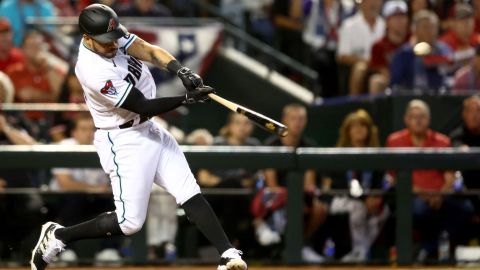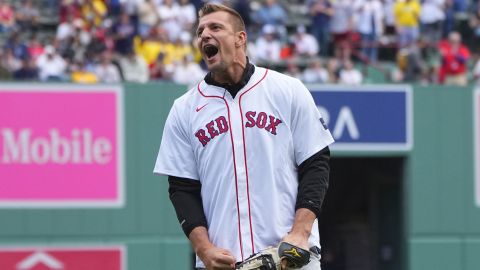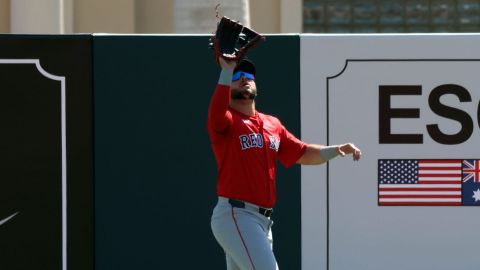Down goes Nieves.
The Bosotn Red Sox needed to do something in response to their early-season struggles. Unfortunately for Juan Nieves, the first major move involved firing their pitching coach, which is reasonable, even though it still doesn’t address Boston’s real issue.
Look, Nieves probably deserved to be shown the door despite his contributions in 2013, when he oversaw a pitching staff that posted its best ERA (3.79) since 2002. The Red Sox’s pitching has been abysmal this season, specifically in the starting rotation, and it was hardly a strength last season, when Boston finished with a 71-91 record and in last place in the American League East.
“I think the situation rendered it because of overall performance,” Red Sox manager John Farrell said Thursday during a conference call. “And that’s not to say that Juan is the sole reason for that. There’s a number of things that we talked about during this call that go into it. We feel like the best way to change things going forward for the performance of our guys is to make a change in this role.”
It isn’t like Nieves wasn’t working his tail off. He seemingly put in the effort necessary to succeed. It’s a results-driven industry, though, and someone needed to shoulder the blame for Boston’s 5.54 rotation ERA to open the season.
The Red Sox have a 3.98 team ERA since the beginning of 2013, when Nieves was hired as Boston’s pitching coach. It’s a substandard mark that’s ranked 22nd in Major League Baseball.
Only five teams — Arizona Diamondbacks, Chicago White Sox, Texas Rangers, Minnesota Twins and Colorado Rockies — have ERAs worse than the Red Sox’s 4.14 mark since the beginning of 2014. Not exactly the company you want to be in as a club with World Series aspirations.
In essence, the Red Sox don’t have much to lose by firing Nieves. It became abundantly clear that change was necessary in some way, shape or form, and canning the man in charge of leading an unproductive group seems like the most logical start. So, really, it is what it is.
But what now?
Nieves was part of the problem, sure. And it’s on Nieves for not getting the most out of his pitchers. But what is “the most?”
All five of the Red Sox’s starters have had major league success at some point — some more than others — and the unit theoretically could be good enough if Boston’s offense beats the crap out of opposing pitchers like it did over the first week of the regular season. But each starter has his shortcomings, too, so it’s not like Nieves’ dismissal automatically precedes a mound revival of epic proportions.
“There’s a long list of things the can affect pitching performance, starting with the pitchers themselves, we recognize that,” Red Sox general manager Ben Cherington said Thursday. “I know they’re accountable for it, but we have to look at every possible way and pitching coach is just one piece of it.”
Yes, Nieves is a piece. Is he the biggest piece? Of course not.
Firing Nieves was a necessary evil in the Red Sox’s overall quest to improve, but Boston’s biggest issue might be the talent assembled within its starting rotation. Until that’s addressed, or until the group pitches up to its full capability, the Red Sox won’t truly reap any benefits of Thursday’s change.
Thumbnail photo via Kim Klement/USA TODAY Sports Images




